
Lifestyle
13:38, 19-Feb-2019
China's bookstores bouncing back amid online onslaught
CGTN

China's brick-and-mortar bookstores have recovered from a wave of closures and are mounting a comeback.
Customers, many of whom had switched to e-reading devices and online stores, are again flocking to traditional bookstores which are offering a wider range of new products.
The Bookdao New Publishing Institute, a consultancy to the country's publishing and bookselling industry, surveyed 62 chains and found that some 65 percent plan to open more than five new stores this year, and 18 percent of them will open over 100.
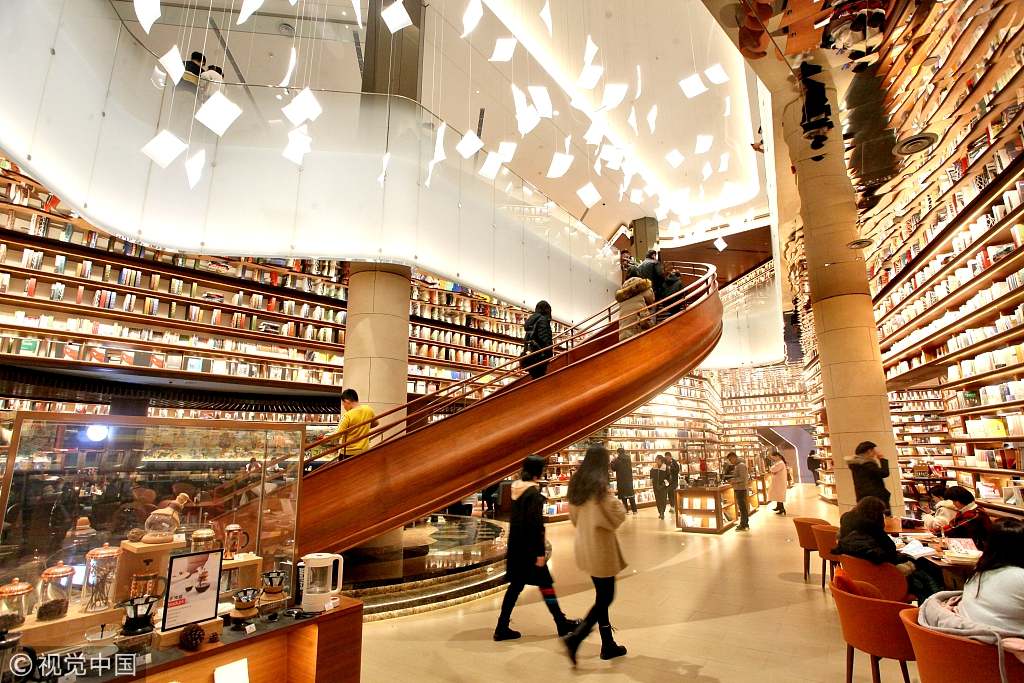
Inside view of a Yanjiyou bookstore opened in October last year in Xi'an, capital city of northwest China's Shaanxi Province. /VCG Photo
Inside view of a Yanjiyou bookstore opened in October last year in Xi'an, capital city of northwest China's Shaanxi Province. /VCG Photo
There were 225,000 bookstores and sales outlets in the country by the end of last year, up by 4.3 percent over 2017. Total sales of publications in the domestic retail sector reached 158 billion yuan (23.4 billion U.S. dollars), a year-on-year growth of 11.3 percent, the report said.
Cheng Sanguo, director of the institute, said, "Chinese bookstores, especially private ones, are opening new branches more frequently and have made eye-catching achievements in recent years."
Privately owned chains FanDeng Bookstore and Sisyphe Bookstore both said that they will open more than 100 branches this year.
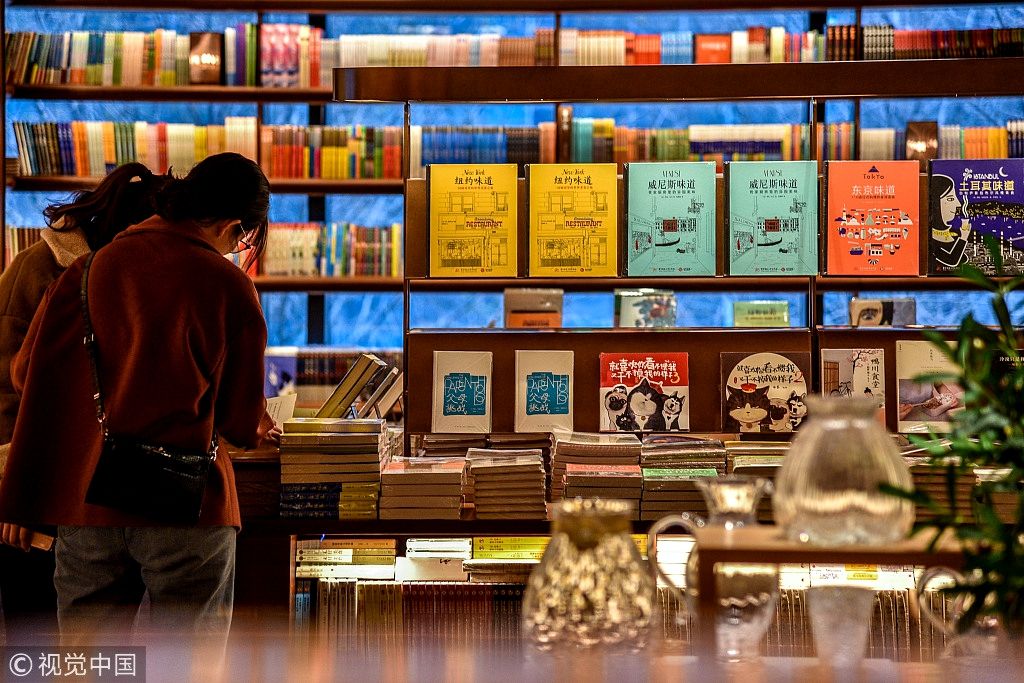
Readers select their favorite books at a bookstore. /VCG Photo
Readers select their favorite books at a bookstore. /VCG Photo
The State-owned Xinhua Bookstore has also accelerated expansion. Its subsidiary, Shangshufang, which was founded in 2015, has set up 198 stores in Henan province, while another subsidiary, Xiaojudeng, which focuses on picture books, now has 150 stores in Hebei province.
Companies operating online have also been turning to brick-and-mortar bookstores, with major digital media platforms Yitiao and Read at Ten both opening offline outlets.
Ji Gang, a partner in Shanghai at global consultancy Roland Berger, said that only a few years ago brick-and-mortar bookstores were hit by the emergence of online outlets, e-reading devices and increased rent and labor costs.
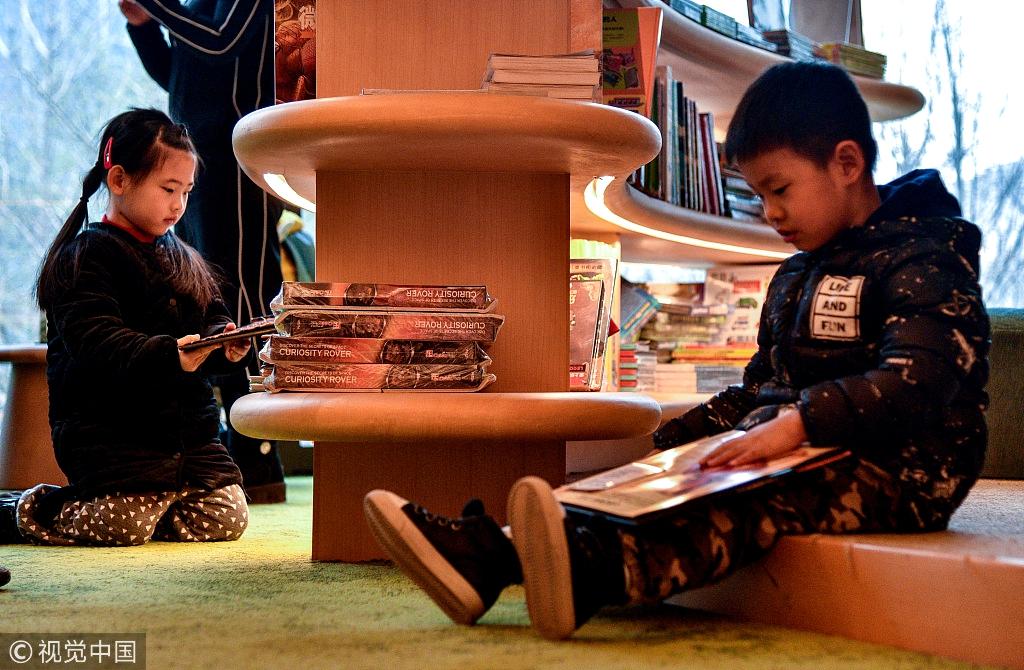
Children read books at a bookstore. /VCG Photo
Children read books at a bookstore. /VCG Photo
From 2000 to 2012, about half of the country's privately owned bookstores closed, while those that were State-owned were struggling. This situation continued until 2017, when bookstore sales increased by 2.33 percent year-on-year, a Roland Berger report said.
Industry insiders said the revitalization of bookstores is largely due to favorable policies that have been unveiled in recent years. The upgrading of cultural consumption has also helped the bookstore industry as consumers are now demanding more quality content and lifestyles.
Designs and data make bookstores more attractive
Dan Jie, founder of the Yanjiyou chain, has experienced these fluctuating fortunes. When his traditional bookselling business stagnated, he founded Yanjiyou in 2013. It has opened large bookstores in shopping malls located in central business districts, with the aim of not only showcasing books, but also cultural lifestyles.
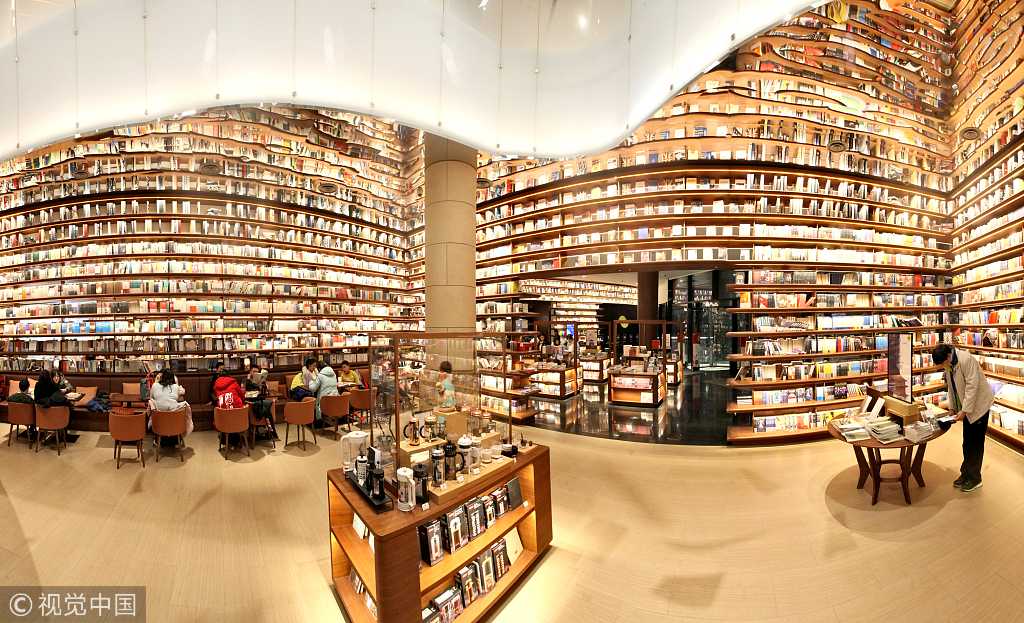
Inside view of a Yanjiyou bookstore opened in October last year in Xi'an, the capital city of northwest China's Shaanxi Province. /VCG Photo
Inside view of a Yanjiyou bookstore opened in October last year in Xi'an, the capital city of northwest China's Shaanxi Province. /VCG Photo
Dan said all Yanjiyou stores attach great importance to an elegant atmosphere and unique outlook, and many of them were planned by well-known designers. "Every Yanjiyou store has unique designs, which usually absorb both local cultural features and exotic elements, as do the books and products that are on display," he said.
In Xi'an, capital of northwestern Shaanxi Province, a Yanjiyou store that opened in late October attracts about 10,000 visitors a day. On weekends, it has to limit the number of visitors.
The store was planned by Japanese designer Tomoko Ikegai, who drew inspiration from palace buildings in the Tang Dynasty (618-907). Images of bronze chariots, horses and the Terracotta Warriors were also used for decoration, and the ceiling lights look like book pages swaying in the wind.
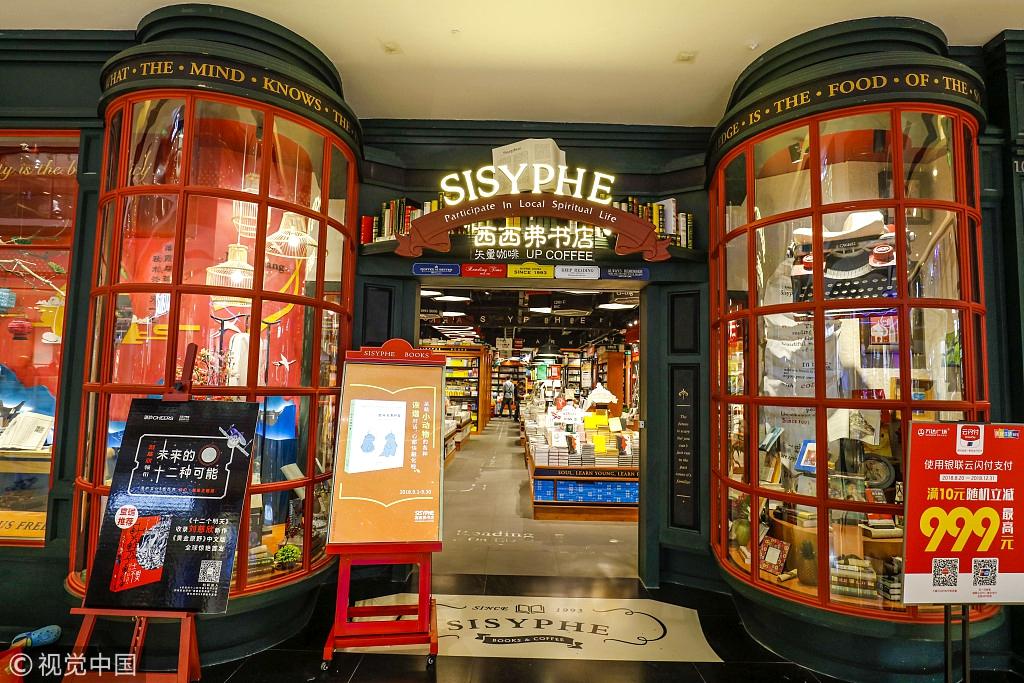
View of a Sisyphe bookstore in Nanchang, in east China's Jiangxi Province. /VCG Photo
View of a Sisyphe bookstore in Nanchang, in east China's Jiangxi Province. /VCG Photo
The 4,500-square-meter store stocks 130,000 books and also includes a coffee shop, an art gallery, a section selling innovative cultural products, and a creative industry incubator.
For Sisyphe Bookstore, standardization is important for fast expansion and profits. Sisyphe opened 83 branches last year, and its revenue reached 900 million yuan, up by 73 percent year-on-year. It plans to open 100 branches this year and is targeting revenue of more than 1.5 billion yuan.
Hu Lei, general manager of the cultural development center at Sisyphe, said the company defines itself as a boutique bookstore chain for the masses and is dedicated to seeking a balance between its cultural attributes and commercial operations.
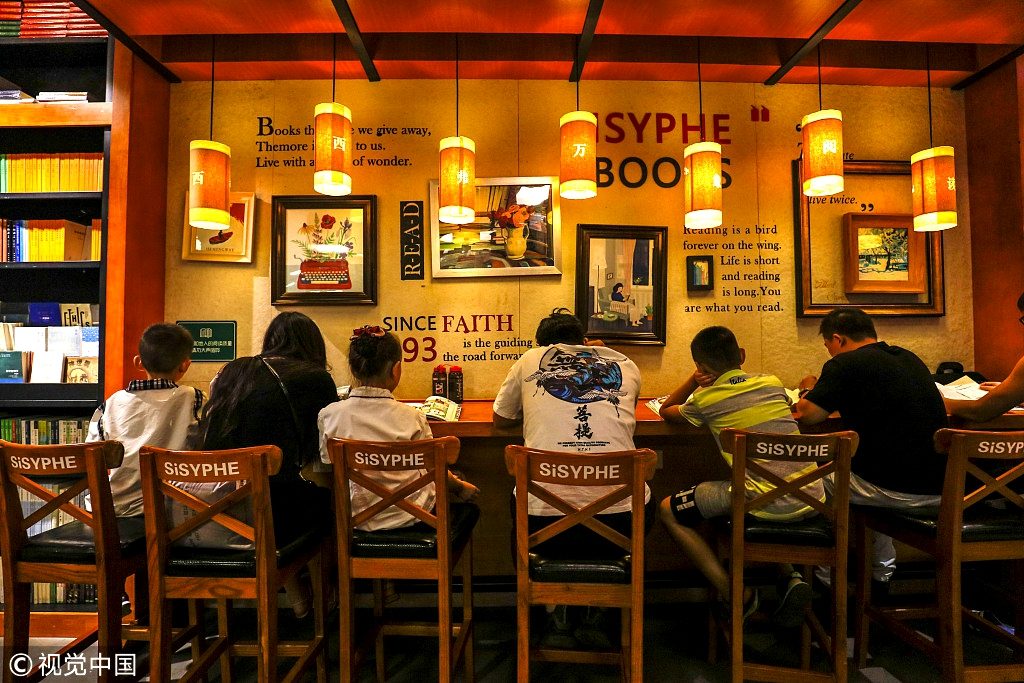
People read books at a Sisyphe bookstore in Nanchang, in east China's Jiangxi Province. /VCG Photo
People read books at a Sisyphe bookstore in Nanchang, in east China's Jiangxi Province. /VCG Photo
"Our target customers are the mass public, and we want to help them cultivate better reading habits and introduce them to quality books," Hu said.
Sisyphe has used big data technology to ensure the books in every store match the tastes of consumers in a specific business district. Each year, it selects for sale less than 10 percent of a large number of high-quality publications in China to cater to a mass readership. Books covering specialized professions are not sold in its stores, Hu said.
(Cover: Inside view of a Yanjiyou bookstore opened in October last year in Xi'an, the capital city of northwest China's Shaanxi Province. /VCG Photo)
Source(s): Xinhua News Agency
,China Daily

SITEMAP
Copyright © 2018 CGTN. Beijing ICP prepared NO.16065310-3
Copyright © 2018 CGTN. Beijing ICP prepared NO.16065310-3